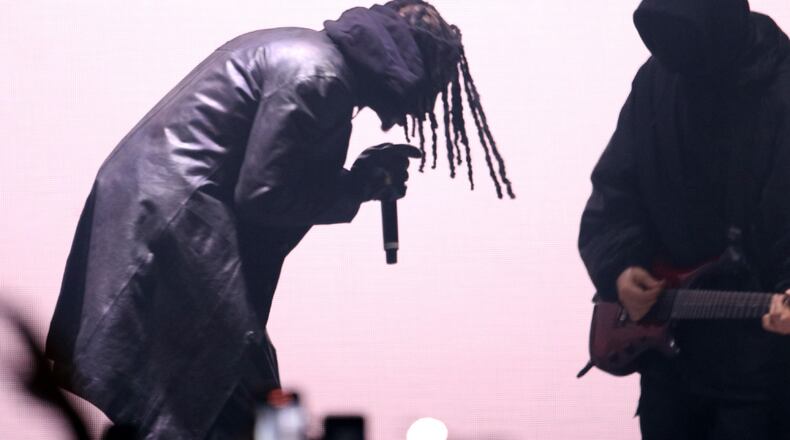Universal Music Group, the parent company of several labels representing Atlanta artists, is the latest entertainment giant to strike a deal with a company developing generative AI software.
The music megacorporation announced Monday it is partnering with the Los Angeles-based AI music company Klay Vision on what it calls a “commercial ethical foundational model” for AI-generated music. The model will launch in the coming months, according to a news release.
Klay is developing a global ecosystem to host AI-driven experiences and content that will not compete with artists’ catalogs in traditional music services, according to the release.
Further details about the UMG-Klay partnership and the model itself were not provided. The news release emphasizes UMG and Klay both believe generative AI models that respect copyright, name and likeness rights will “lessen the threat to human creators,” as well as create “new avenues for creativity and future monetization of copyrights.”
UMG, which has U.S. headquarters in California, owns labels including Capitol Music Group, Def Jam Recordings, Interscope Records and Republic Records, among several others. Atlanta artists under the UMG umbrella include Summer Walker, Playboi Carti and 6lack.
The partnership signals that UMG is seeking to become somewhat of an industry leader when it comes to adopting AI across the music industry in an “ethical” manner — using the technology in a way that doesn’t infringe on copyright or the rights of individual artists.
Earlier this year, UMG and music instrument manufacturer Roland published a document outlining their shared principles on the responsible use of AI in music creation. AI presents opportunities for innovation in the music industry, but there is a need for internal governance “to protect the essence of music — its human spirit,” according to the document.
UMG is one of several companies involved in lawsuits against AI music generators Suno and Udio, alleging the two are training their tools on copyrighted songs without payment or permission. In an answer to the companies’ legal complaint filed in Massachusetts federal court, Suno said it did not develop its capabilities in a vacuum, and that it is the product of “extensive analysis” of the building blocks of music, such as the instruments and vocalizations in specific genres and the ways in which songs in those genres are structured.
“Those genres and styles — the recognizable sounds of opera, or jazz, or rap music — are not something that anyone owns,” Suno said in the complaint.
In its answer filed in federal court in New York, Udio expressed a similar sentiment, saying anyone is free to create a new song using the basic building blocks of music, and its platform makes that possible for everyone.
There is perhaps no topic more incendiary in entertainment today than the use of AI in generating content, whether it’s replicating the voice of a deceased musician or virtually adding background actors to a massive crowd scene in a movie. Advocates say generative AI tools can automate or streamline cumbersome tasks, allowing musicians or artists to be more productive and efficient with their time. Opponents say generative AI strips the humanity out of art, and has the potential to replace human jobs as the technology advances.
However, there’s no way to put the genie back in the bottle, said Elizabeth Strickler, the director of the media entrepreneurship program within Georgia State’s Creative Media Industries Institute, during an October panel at Georgia Tech about the use of AI in filmmaking. Studios and record labels, including UMG and Lionsgate Studios, have already begun to forge partnerships with AI companies.
About the Author






